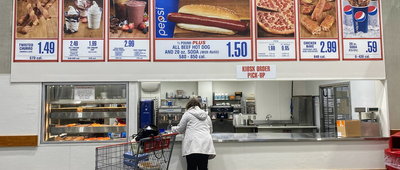For weeks the world has anticipated a cheap Apple iPhone, known as the 5C, and it's finally arriving -- sort of. The iPhone 5C is $100 cheaper than the premium iPhone 5S, which Apple is releasing at the same time, but not as cheap as many consumers, investors, and analysts were hoping. It appears that the C stands not for "cheap" but for "color," a reference to a polycarbonate back that comes in a variety of shades.
Far bigger than the price difference between the two new iPhones is the price difference between service plans from the big four providers: AT&T, Sprint, T-Mobile, and Verizon Wireless. Cheapism crunched the numbers, factoring in everything from plan pricing to our recent report on cell phone fees, and found that consumers' choice of carrier can save them hundreds over two years (the length of most contracts).
First things first: the cost of the phone itself. The iPhone 5C comes in 16GB and 32GB variants, so if you're on a budget, be sure to select the cheaper 16GB version, which retails for $549 without a contract. Signing a two-year service agreement with AT&T or Verizon yields a discounted price of $100. At Sprint the iPhone 5C is free for new customers who transfer a number from a rival carrier, thanks to a limited-time deal for $100 off any phone. For T-Mobile, which has replaced subsidized phones and service contracts with monthly payment plans for the full cost of the phone, we used a payment option of $0 down and $22 per month to determine the cost over two years: $528. (Verizon now offers a similar Edge plan that allows customers to pay off a phone over time, but it still requires a regular contract. AT&T's Next plan gets rid of the contract, but we found the overall prices so much higher than any of the options below that it's not even worth considering.)
To compare the cost of service, we chose mid-range plans that offer individual subscribers at least 2GB of high-speed data, unlimited text messages, and either unlimited minutes or, in the case of AT&T, 900 anytime minutes and unlimited mobile-to-mobile and night/weekend minutes. These monthly plans aren't exactly the same, nor are they the absolute cheapest option, but they're comparable and should satisfy the needs of most consumers:
- AT&T's individual plan with 900 minutes ($59.99), unlimited messaging ($20), and 3GB of data ($30)
- Sprint's Unlimited, My Way plan with unlimited talk, text, and data ($80)
- T-Mobile's Simple Choice plan with unlimited talk, text, and data, including 2.5GB of high-speed data ($60)
- Verizon's Share Everything plan with one smartphone ($40) and unlimited talk and text and 2GB of data ($60)
Consumers still under contract with another carrier must also factor in their current provider's early termination fee, which can reach $350. The carriers prorate their so-called ETFs, knocking off $10 or $20 for each month a service agreement has been in effect, so the chart below includes the fee after one year as a benchmark. Even if you have to pay to get out of a contract early, switching carriers may still make financial sense.
Cost of an iPhone 5C Over 2 Years*
| Sprint | ||||||
| T-Mobile | ||||||
| Verizon Wireless | ||||||
| AT&T |
* Before taxes
Without a doubt, the best course of action based on price alone is to go with Sprint or T-Mobile -- as long as one of them provides service in your area. The savings over two years amount to more than $500 over Verizon and nearly $800 over AT&T. Sprint and T-Mobile also provide unlimited data, which eliminates the potential for data overage charges, which start at $10 per gigabyte on AT&T and $15 per gigabyte on Verizon.
For consumers who are looking to take advantage of the iPhone frenzy but don't mind not having the latest gadget, it may be a good time to check out the iPhone 5, as well. Although Apple has officially discontinued the phone and pulled it from the online store, many other retailers still have stock they need to move. Phone carriers and electronics stores are likely to offer discounts and run promotions for the well-reviewed smartphone, which is only a year old. Cheapism also recently took stock of the iPhone vs. Galaxy race and found that a Samsung Galaxy phone is likely to be cheaper to own over the long-term. But for Apple fanatics who've been waiting for a new iPhone at a lower price point, going Galaxy may be an unthinkable move.








